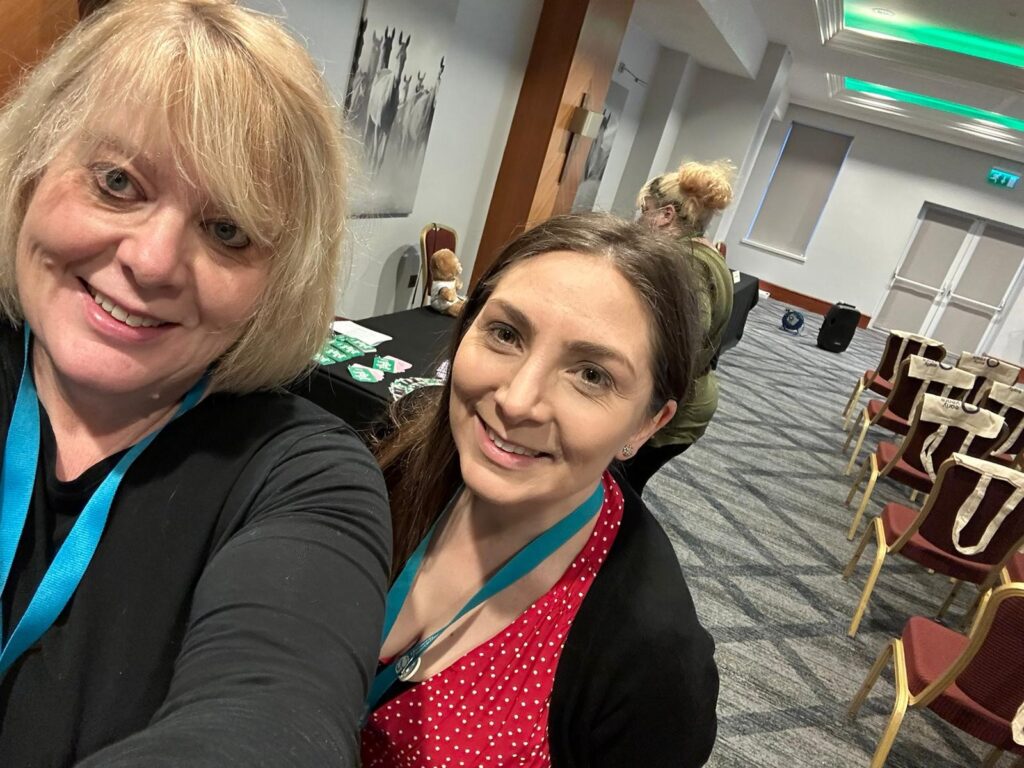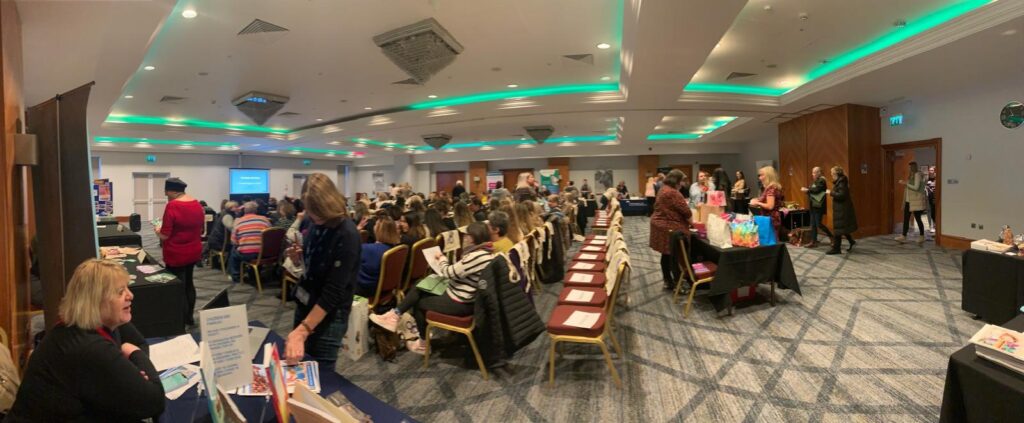On Friday 15th November, UWDCFs Michelle Malomo and Olivia Storey attended the Early Years Gloucestershire Conference. In this blog they reflect on the day’s events.

Travelling to Gloucestershire, there was a nip in the air that signalled winter’s arrival. On arriving at the conference location, a palpable buzz filled the room as early years practitioners from across the county gathered. The energy was almost magical, a testament to the passion and commitment of those present.
Throughout the day, the hum of conversations and networking filled the air. The conference opened with a warm welcome from Sarah Hylton, Head of Early Years in Gloucestershire. She praised the local practitioners’ dedication and highlighted the impressive number of settings awarded the Dingley’s Promise Award for Inclusion, placing Gloucestershire second in the UK for the highest number of settings with this prestigious award.
The programme featured workshops blending theory with practical application, including sessions on Mathematics in the Early Years by Ben Kingston-Hughes, Exploring the Benefits of Recycled Materials by Jo Royce, an Ofsted Workshop by Champa Miah, and Supporting Positive Behaviour for Learning by Zelpher Ferguson. The day also featured two thought-provoking keynotes.

Adam Marycyz
Adam’s keynote began by addressing the risks of tokenistic ethos in early years settings. Citing Julie Fisher’s (2024) argument, he emphasized that curricula should be rooted in a setting’s aims and values. Adam highlighted the importance of involving all stakeholders in shaping the ethos.
Drawing on Kimberley Crenshaw’s concept of intersectionality, Adam explained how identity is shaped by diverse experiences, including those involving inequality and disadvantage. He urged practitioners to avoid teaching to Western and middle-class norms. Using the example of a child eating with their hands, he posed critical questions about navigating such situations while supporting both learning and identity.
Adam also explored supporting children’s cultural capital in line with DfE and Ofsted expectations while maintaining British values and a setting’s ethos. He advocated for a flexible and balanced approach, urging practitioners to see things from children’s perspectives.
Ben Kingston-Hughes
“Play is everything. It’s not important like broccoli, it’s life changing”. This powerful message encapsulated Ben’s engaging keynote. He argued that early years professionals should be seen as brain architects or neuro-engineers. Although these titles were offered with humour, Ben’s awe for the sector’s vital work was evident as he shared examples illustrating the lifelong importance of early childhood experiences.
Ben discussed the physiological benefits of play, referencing Jaak Panksepp’s research on how play acts as a natural opioid, reducing pain and releasing oxytocin, the happiness hormone. He explained that play stimulates the brain similarly to food, underscoring its critical role in development.
Highlighting the relationship between early childhood experiences and epigenetics, Ben noted these experiences can influence genetic markers, affecting not just individual development but potentially spanning multiple generations. As an example, he explained how skipping can improve bone density, reduce osteoporosis in old age, and increase life expectancy.
Reflections and Connections
Attending this conference was a privilege. We left with notebooks full of research ideas and insights to share with colleagues and students. We also made valuable connections with professionals offering fantastic resources for children and families, including behavioural consultants, local authority representatives, forest school practitioners, and charity workers. Most importantly, we met incredible potential students we hope to see in future classes.
If you’re interested in any of our courses, please visit the webpages:
FdA Early Years (HTQ) Flexible and Distributed Learning
BA (Hons) Integrated Working with Children and Families Top Up Degree
Postgraduate Certificate in Leading Culture Change in Safeguarding
